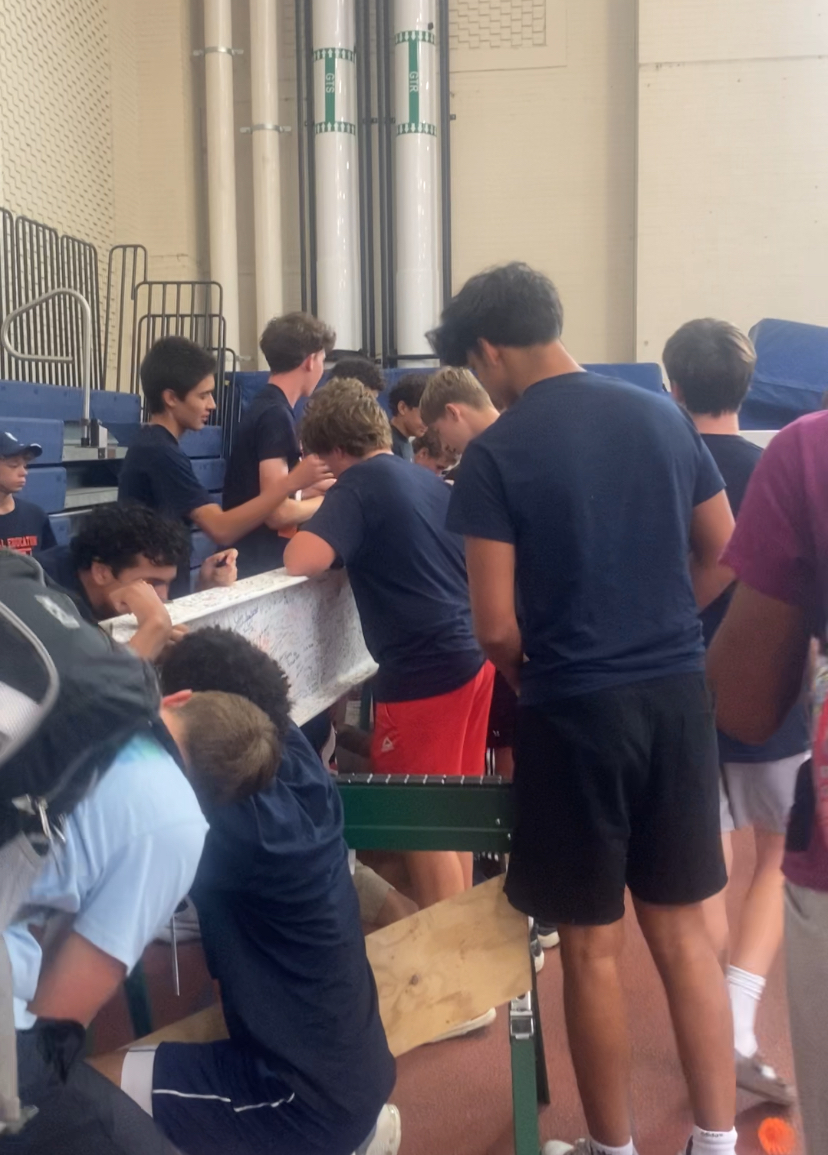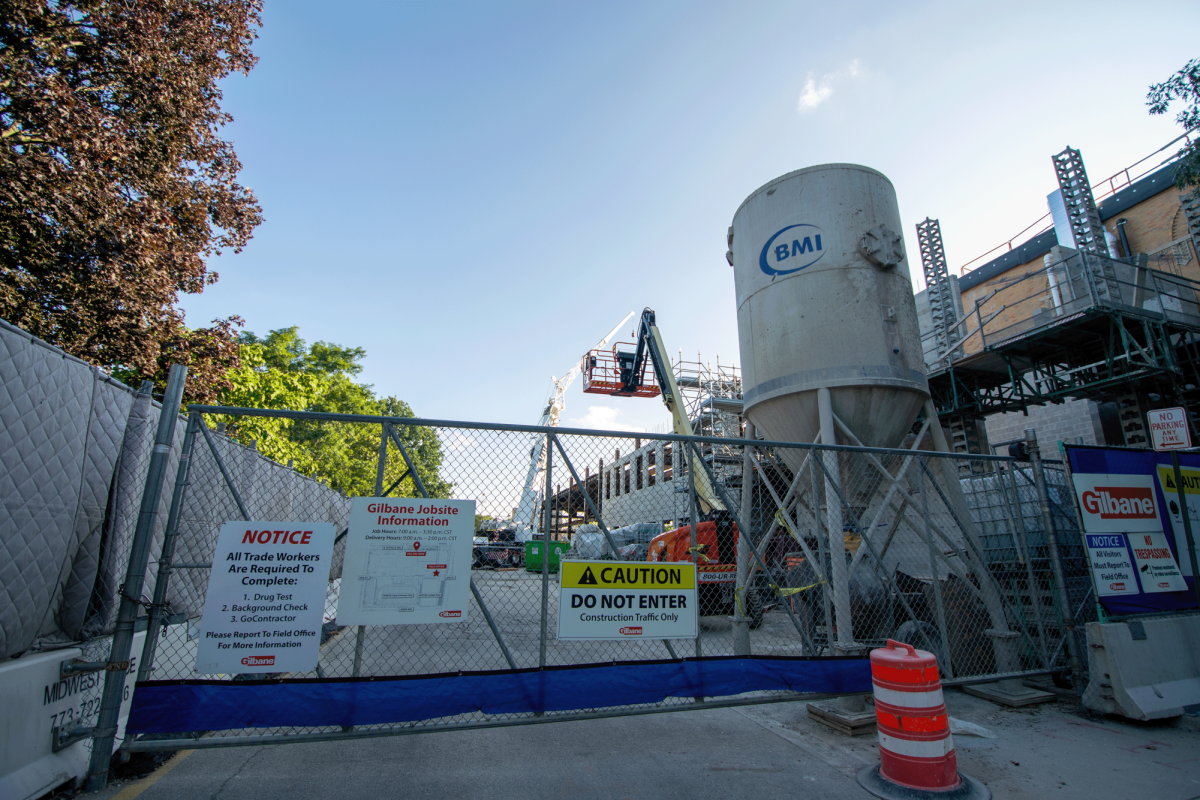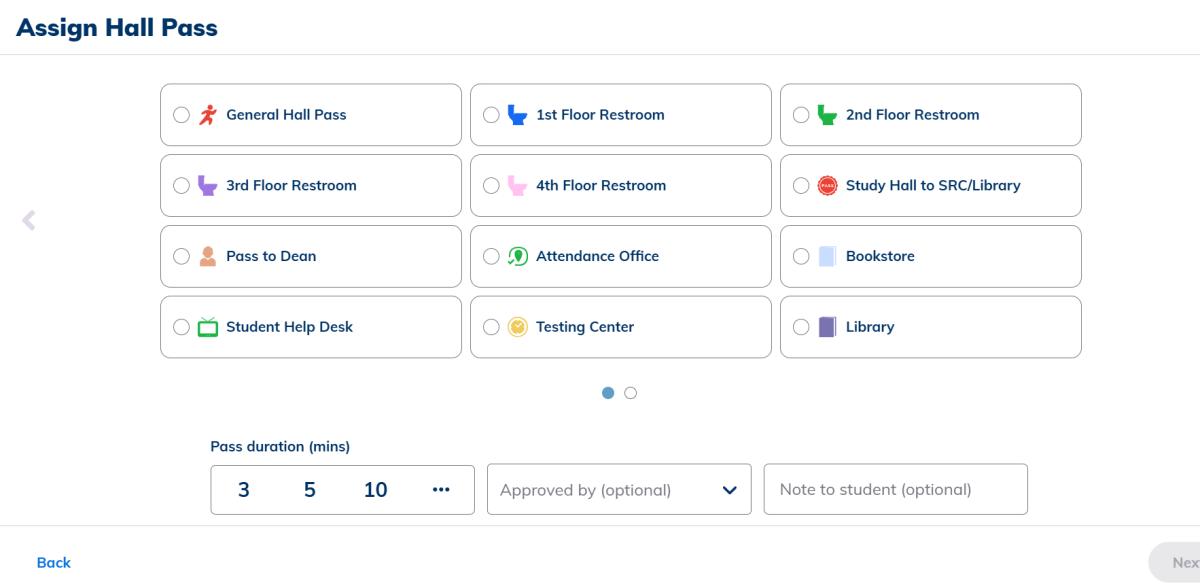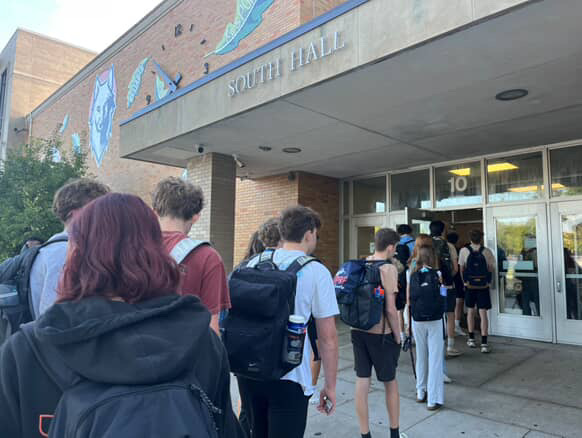Oak Park and River Forest High School has torn up the turf on the main football field and will install geothermal wells underneath to heat and cool Project 2, the new athletic wing.
The permit for the project was approved the week of Nov. 4, and OPRF planned to move ahead with the demolition of the football field’s turf during the week of Nov. 11, according to Anthony Arbogast, the Assistant Superintendent for Business Services.
Geothermal energy uses the earth’s natural heat for energy. It is considered a renewable energy source because the slow decay of radioactive particles in the earth’s core constantly produces heat. Pipes, or geothermal wells, will be installed deep underneath the football field. Fluid will then be sent down the wells. When the school is in need of heat, the fluid will be heated by the earth’s natural heat, and when the school is in need of cooling, the excess heat from the fluid will be absorbed by the earth.
This system will provide 100 percent of the heating and cooling for Project 2. The school will install 270 geothermal wells, each going 500 feet into the earth. Pumps will then be used for the transportation of this heating and cooling to Project 2.
The geothermal installation will cost the school approximately $12.5 million; approximately $10.5 million of that will be spent on the actual installation, while the remaining $2 million will go toward replacing the drainage and the turf on the field.
When the project is completed, it is expected to save the OPRF School District 200 roughly $385,000 per year in energy costs. In addition, the district will receive major rebates from the government because of the use of green energy. Between the geothermal installation and Project 2, OPRF expects to get between $8.9 and $10.5 million dollars of rebate, according to Arbogast.
The new heating and cooling will also have a major impact on the school’s carbon emissions. It is expected to save the school approximately 442,000 pounds of carbon dioxide emissions annually, which is equivalent to driving a car 504,984 miles, according to the OPRF sustainability web page and Arbogast.
“Oak Park River Forest is a leader in areas of sustainability,” said Arbogast. “We don’t just say we are going to do things; when resources are available, we put our money where our mouth is.”
The geothermal project ties into the school’s greater Sustainability Plan. The major goals in the plan consist of cutting the school’s greenhouse gas emissions to 45 percent of the 2012 levels by 2030 and going carbon neutral by 2050. Geothermal is a major step towards those goals.
In January 2024, the District 200 Board of Education approved the geothermal plan and the company who will install it, Veregy LLC, an engineering and construction firm based out of Phoenix, Arizona that specializes in green projects.
The geothermal construction will continue well into the spring sports season and possibly to graduation for the class of 2025. The OPRF Athletic Department currently has a plan to relocate certain practices for girls’ soccer as well as for both lacrosse teams, according to OPRF Athletic Director Nicole Ebsen. The plan consists of relocating select practices to the Triton stadium, the turf field at Dominican University, and the Concordia University stadium. This will be done as a field rental, she said.
The school is also planning to provide buses after school to practices to make the relocation as accessible as possible. “It is our intention to the best of our ability to keep all games on campus,” said Ebsen.
Another major question raised by the construction on the football field is whether the stadium will be available for graduation. Arbogast said, “If everything goes well, it’s a possibility. The district has started making alternative plans. It’s tough to say right now.” If the field is not ready by graduation, it is likely that graduation will be held in the fieldhouse or off campus.
The co-president of the Enviro CLub at OPRF, Poppy Booth, expressed their opinions on OPRF’s obligation to do projects like this. “This is when people learn and develop their moral compass,” they said. “When you see your school value environmental issues and their impact on the environment, it helps inform you on how to go on for the rest of your life.”






